| Listing 1 - 10 of 11 | << page >> |
Sort by
|
Dissertation
Year: 1996 Publisher: Liège : Université de Liège. Faculté de Médecine. Institut supérieur d'éducation physique,
Abstract | Keywords | Export | Availability | Bookmark
 Loading...
Loading...Choose an application
- Reference Manager
- EndNote
- RefWorks (Direct export to RefWorks)
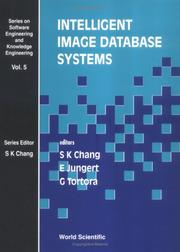
ISBN: 9810223900 Year: 1996 Publisher: Singapore World scientific
Abstract | Keywords | Export | Availability | Bookmark
 Loading...
Loading...Choose an application
- Reference Manager
- EndNote
- RefWorks (Direct export to RefWorks)
Automatic indexing --- Database management --- Image processing --- Space perception --- Databases
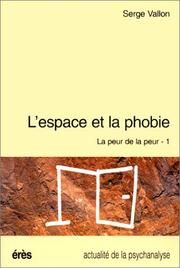
ISSN: 12721573 ISBN: 2865863816 9782865863815 Year: 1996 Volume: 1 Publisher: Ramonville Saint-Agne : Editions Erès,
Abstract | Keywords | Export | Availability | Bookmark
 Loading...
Loading...Choose an application
- Reference Manager
- EndNote
- RefWorks (Direct export to RefWorks)
Phobias. --- Psychoanalysis. --- Phobies --- Psychanalyse --- Personal Space --- Phobic Disorders --- Psychoanalysis --- Fear --- Space Perception --- Phobie --- --Psychanalyse --- --Phobias. --- Psychoanalyse --- klinische beschouwingen --- klinische beschouwingen.
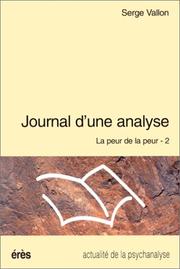
ISSN: 12721573 ISBN: 2865863824 9782865863822 Year: 1996 Volume: 2 Publisher: Ramonville Saint-Agne : Erès,
Abstract | Keywords | Export | Availability | Bookmark
 Loading...
Loading...Choose an application
- Reference Manager
- EndNote
- RefWorks (Direct export to RefWorks)
Personal Space --- Phobic Disorders --- Psychoanalysis --- Fear --- Space Perception --- Phobias --- Phobias. --- Psychoanalysis. --- Psychoanalyse --- Case studies. --- klinische beschouwingen --- klinische beschouwingen.
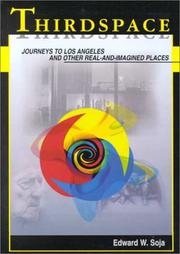
ISBN: 1557866759 1557866740 9781557866745 9781557866752 Year: 1996 Publisher: Cambridge, Mass. Blackwell
Abstract | Keywords | Export | Availability | Bookmark
 Loading...
Loading...Choose an application
- Reference Manager
- EndNote
- RefWorks (Direct export to RefWorks)
Contemporary critical studies have recently experienced a significant spatial turn. In what may eventually be seen as one of the most important intellectual and political developments in the late twentieth century, scholars have begun to interpret space and the embracing spatiality of human life with the same critical insight and emphasis that has traditionally been given to time and history on the one hand, and social relations and society on the other. Thirdspace is both an enquiry into the origins and impact of the spatial turn and an attempt to expand the scope and practical relevance of how we think about space and such related concepts as place, location, landscape, architecture, environment, home, city, region, territory, and geography.The book's central argument is that spatial thinking, or what has been called the geographical or spatial imagination, has tended to be bicameral, or confined to two approaches. Spatiality is either seen as concrete material forms to be mapped, analyzed, and explained; or as mental constructs, ideas about and representations of space and its social significance. Edward Soja critically re-evaluates this dualism to create an alternative approach, one that comprehends both the material and mental dimensions of spatiality but also extends beyond them to new and different modes of spatial thinking.Thirdspace is composed as a sequence of intellectual and empirical journeys, beginning with a spatial biography of Henri Lefebvre and his adventurous conceptualization of social space as simultaneously perceived, conceived, and lived. The author draws on Lefebvre to describe a trialectics of spatiality that threads though all subsequent journeys, reappearing in many new forms in bell hooks evocative exploration of the margins as a space of radical openness; in post-modern spatial feminist interpretations of the interplay of race, class, and gender; in the postcolonial critique and the new cultural politics of difference and identity; in Michel Foucault's heterotopologies and trialectics of space, knowledge, and power; and in interpretative tours of the Citadel of downtown Los Angeles, the Exopolis of Orange County, and the Centrum of Amsterdam.
Spatial perception --- Geographical perception. --- Postmodernism --- Sociology, Urban. --- Space perception. --- Geografie --- Social aspects. --- Sociale en economische geografie --- Algemeen. --- 316 --- 316.334.56 --- 572 --- 159.9 --- 711.61 --- Urban sociology --- Environmental perception --- Maps, Mental --- Mental maps --- Perceptual cartography --- Perceptual maps --- Sociologie --- Urbane sociologie --- Antropologie --- Filosofie --- Publieke ruimte --- Openbare ruimte --- Los Angeles (Calif.) --- Social conditions. --- Geographical perception --- Social conditions --- Social aspects --- Sociology, Urban --- Space perception --- Cities and towns --- Perception --- Orientation (Psychology) --- Spatial behavior --- Figure-ground perception --- Sociology of environment --- Architecture --- urban sociology --- space perception --- Postmodern --- Los Angeles [California] --- Lefebvre, Henri (1901-1991) --- Géographie --- Perception géographique --- Comportement spatial --- Sociologie urbaine --- Contribution au concept d'espace --- Philosophie --- États-Unis --- Californie (États-Unis) --- Los Angeles
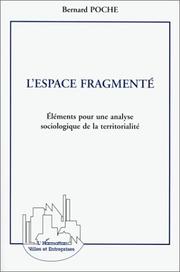
ISBN: 2738444288 9782738444288 Year: 1996 Publisher: Paris : L'Harmattan,
Abstract | Keywords | Export | Availability | Bookmark
 Loading...
Loading...Choose an application
- Reference Manager
- EndNote
- RefWorks (Direct export to RefWorks)
Human territoriality --- Social structure --- Space and time --- Space perception --- Territorialité humaine --- Structure sociale --- Espace et temps --- Perception spatiale --- Social aspects --- Sociological aspects --- Aspect social --- Aspect sociologique --- Geography --- Sociology --- Community --- Espace --- --Territorialité --- --Geography --- --Human territoriality --- Territorialité humaine --- Territorialité
Multi
ISSN: 12659835 ISBN: 2738115837 9782738115836 Year: 1996 Publisher: Paris Odile Jacob
Abstract | Keywords | Export | Availability | Bookmark
 Loading...
Loading...Choose an application
- Reference Manager
- EndNote
- RefWorks (Direct export to RefWorks)
Quels rapports l'homme entretient-il avec ses espaces ? Autour de cette question, un symposium du Collège de France a réuni en octobre 2003 des mathématiciens et des physiciens, des physiologistes et des psychologues, des anthropologues et des géographes, des historiens de l'art et de la religion, des architectes, un homme de théâtre et un astronaute. Ils montrent ici comment dans notre cerveau, notre langage et par nos actions s'élaborent nos concepts d'espace. lis décrivent comment les mythes organisent l'espace quotidien et les religions les espaces sacrés, comment l'architecture, l'urbanisme ou l'aménagement du territoire contribuent à structurer nos comportements, comment la perspective en peinture, la scène théâtrale ou le jardin paysager entretiennent l'illusion d'un espace entre réalité et utopie.
Human sciences (algemeen) --- humanities --- Space perception --- Space and time --- Space (Architecture) --- Signs and symbols --- Perception spatiale --- Espace et temps --- Espace (Architecture) --- Signes et symboles --- Congresses --- Congrès --- Space (Art) --- Perception de l'espace --- Abri --- Analyse architecturale --- Bruit --- Espace architectural --- Espace de jeu --- Espace de représentation --- Espace imaginaire --- Espace privé --- Espace public --- Espace sacré --- Espace sensoriel --- Espace social --- Espace vécu --- Ethnologie --- Congrès --- Space perception - Congresses --- Space and time - Congresses --- Space (Art) - Congresses --- Espace (art) --- Espace (philosophie) --- Perception spatiale. --- Signes et symboles.
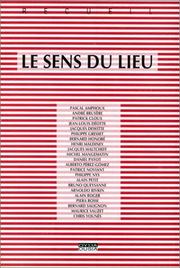
ISBN: 287060050X 9782870600504 Year: 1996 Volume: 5 Publisher: Bruxelles Bruxelles Ousia Eurorgan
Abstract | Keywords | Export | Availability | Bookmark
 Loading...
Loading...Choose an application
- Reference Manager
- EndNote
- RefWorks (Direct export to RefWorks)
La question du lieu engage un rapport à l'identité individuelle et collective, un rapport à l'histoire, un rapport au sens et cela dans un monde qui se soumet à l'emprise de mécanismes aveugles qui semblent tout puissants. Dans un sens large - habiter la terre -, l'architecture produit le mécanisme, elle résiste à l'emprise en projettant des modèles spatiaux, théoriques et construits, dans l'espace et le remps. L'architecture est toujours, dans le même geste, construite et pensée. Une reprise théorique, historique et projectuelle profonde est nécessaire pour donner un sens, non pas sens plein ou toujours déjà disponible, mais la possiblité d'un sens ouvert à l'histoire. C'est dans cette perspective que sont rassemblées ici les contributions de philosophes, théoriciens et historiens de l'architecture.
Filosofie --- Philosophie --- Space (Architecture) --- Space perception. --- Architecture --- Espace (Architecture) --- Perception spatiale --- Philosophy --- Perception de l'espace --- Représentation architecturale --- Phénoménologie --- Espace urbain --- Espace architectural --- Théorie de l'architecture --- Theorie de la perception --- Space perception --- Spatial perception --- Perception --- Spatial behavior --- Figure-ground perception --- Geographical perception --- Architecture and space --- Space and architectural mass --- Space in architecture --- City planning --- Composition, proportion, etc. --- Negative space (Architecture) --- ARCHITECTURE --- ARCHITECTURE ET HISTOIRE --- ESPACE (ARCHITECTURE) --- PERCEPTION SPATIALE --- PHILOSOPHIE
Book
ISBN: 2130478557 9782130478553 Year: 1996 Publisher: Paris : Presses universitaires de France,
Abstract | Keywords | Export | Availability | Bookmark
 Loading...
Loading...Choose an application
- Reference Manager
- EndNote
- RefWorks (Direct export to RefWorks)
La question de la peinture n'appartient ni d'abord, ni uniquement aux peintres ou aux esthéticiens. Elle appartient à la visibilité elle-même, donc à tous. A dire vrai ou plus exactement à tous ceux pour qui voir ne va pas de soi. Et c'est sans doute pourquoi la philosophie ne peut que se trouver, quand il y va de la peinture, à demeure. En effet, la philosophie a pris aujourd'hui une figure essentielle, la phénoménologie ; or la phénoménologie ne prétend revenir aux choses mêmes que parce qu'elle entreprend d'abord de voir ce qui se donne - ce que cela donne. La visibilité exceptionnelle du tableau devient alors un cas privilégié du phénomène, éventuellement une voie vers la phénoménalité en général. Mais la phénoménologie suffit-elle à cerner la visibilité et donc tous les tableaux possibles ? Le tableau n'admet-il lui-même qu'un seul statut, ou ne ménage-t-il pas d'autres ressources ? En passant de l'idole à l'icône, nous poursuivons certes des recherches antérieures, mais nous suivons surtout la nécessité de la chose même : le tableau, donc le visible par excellence, s'offre au dilemme de deux figures d'apparition, inverses, adverses et pourtant indispensables, inséparables. La théologie devient, dans cette situation, une instance irrécusable de toute théorie du tableau. Pour l'avoir parfois dénié, puis simplement oublié, la pensée esthétique s'est parfois empêtrée dans de longues apories. Le temps vient peut-être de s'en délivrer et de voir le visible en face, comme le don de l'apparaître.
Metaphysics --- Painting --- Peinture --- Philosophy --- Psychological aspects --- Philosophie --- Aspect psychologique --- Perception visuelle. --- Perspective. --- Phenomenologie --- Visual perception --- Perspective --- Phenomenology --- Visual Perception --- CDL --- 7.01 --- Visual Processing --- Perception, Visual --- Processing, Visual --- Vision, Ocular --- Philosophy, Modern --- Architectural perspective --- Linear perspective --- Mechanical perspective --- Optics --- Space (Art) --- Space perception --- Projection --- Proportion (Art) --- Shades and shadows --- Optics, Psychological --- Vision --- Perception --- Visual discrimination --- Peinture - Philosophie --- Phénoménologie. --- Perception des images. --- Image (philosophie). --- Image (théologie). --- Idoles et images. --- Icônes (art). --- Art --- Philosophie. --- Aspect symbolique.
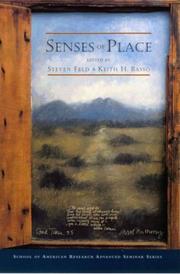
ISBN: 0933452950 0933452942 9780933452954 9780933452947 Year: 1996 Publisher: Santa Fe School of American research press
Abstract | Keywords | Export | Availability | Bookmark
 Loading...
Loading...Choose an application
- Reference Manager
- EndNote
- RefWorks (Direct export to RefWorks)
The complex relationship of people to places has come under increasing scholarly scrutiny in recent years as acute global conditions of exile, displacement, and inflamed borders-to say nothing of struggles by indigenous peoples and cultural minorities for ancestral homelands, land rights, and retention of sacred places-have brought the political question of place into sharp focus. But to date, little attention has been paid to the ethnography of place, to how people actually live in, perceive, and invest with meaning the places they call home.In this compelling new volume, eight respected ethnographers explore and lyrically evoke the ways in which people experience, express, imagine, and know the places in which they live. Case studies range from the Apaches of Arizona’s White Mountains to the residents of backwoods “hollers” in Appalachia and the Kaluli people of New Guinea’s rainforests. As these writers confront the dilemmas and possibilities of an anthropological consideration of place, they make an important and moving contribution to our understanding of ourselves.
Ethnology --- Geographical perception. --- Human geography --- Philosophy. --- Ethnology. Cultural anthropology --- Sociology of culture --- Philosophical anthropology --- group identity --- Social geography --- human geography --- ethnicity --- Geographical perception --- #SBIB:316.334.5U13 --- #SBIB:39A4 --- Environmental perception --- Maps, Mental --- Mental maps --- Perceptual cartography --- Perceptual maps --- Perception --- Orientation (Psychology) --- Space perception --- Philosophy --- Sociologie van stad en platteland: sociale aspecten van de ruimte, sociale ecologie --- Toegepaste antropologie --- Géographie sociale --- Ethnologie --- Perception géographique --- Philosophie --- Human geography - Philosophy --- Ethnology - Philosophy
| Listing 1 - 10 of 11 | << page >> |
Sort by
|

 Search
Search Feedback
Feedback About
About Help
Help News
News